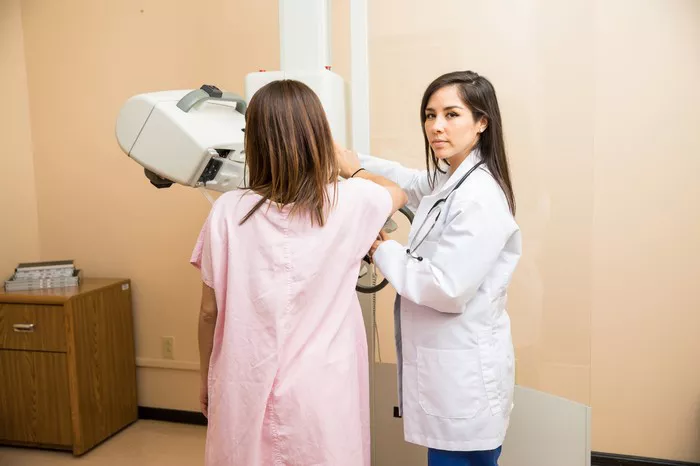“What are signs of menopause in women?” This question marks the beginning of a transformative journey that many women will encounter in their lives. Menopause, a natural biological process, signifies the end of reproductive years and the onset of a new phase in a woman’s life. Understanding the signs and symptoms associated with menopause is crucial for women to navigate this transition with knowledge and confidence. In this comprehensive guide, we will explore the various aspects of menopause, ranging from early indicators to the physical and emotional changes that accompany this significant life stage.
How do I know if I’m in early menopause?
Early menopause, also known as perimenopause, is the phase leading up to menopause itself. It typically begins in a woman’s 40s but can start earlier. Recognizing the signs of early menopause is essential for understanding and managing the changes that occur during this period. Common indicators include irregular menstrual cycles, mood swings, hot flashes, and changes in sleep patterns. It’s crucial to consult with a healthcare professional if these symptoms arise, as they can provide valuable guidance and support.
What is the earliest age for menopause?
While the average age for menopause in women is around 51, it is not uncommon for menopause to occur earlier. The earliest age for menopause is generally considered to be in the late 30s, although it can happen even earlier in some cases. Early menopause can result from factors such as genetics, certain medical conditions, or surgical interventions like a hysterectomy. Understanding the potential for early menopause allows women to be proactive in managing their health and seeking appropriate medical advice.
How does your body feel during menopause?
Menopause is a profound biological transition that affects the entire body. Physical symptoms can include hot flashes, night sweats, vaginal dryness, and changes in skin elasticity. Understanding these bodily changes is essential for women going through menopause to adapt their self-care routines. Maintaining a healthy lifestyle, including regular exercise, a balanced diet, and proper hydration, can help alleviate some of the physical discomfort associated with this stage of life.
See Also: Best Menopause Supplements for Weight Loss
Is 47 too early for menopause?
No, 47 is not necessarily too early for menopause. As mentioned earlier, menopause can occur in the late 30s or early 40s for some women. The timing of menopause is influenced by various factors, including genetics, lifestyle, and overall health. If a woman experiences symptoms of menopause around the age of 47, it’s essential to consult with a healthcare professional for a comprehensive evaluation. Early intervention can help manage symptoms and promote overall well-being during this transitional phase.
Understanding hormonal changes during menopause
Menopause is primarily driven by hormonal changes, particularly a decline in estrogen and progesterone levels. These hormonal shifts contribute to many of the physical and emotional symptoms associated with menopause. Understanding the intricate balance of hormones in the body and how they evolve during menopause can empower women to make informed decisions about their health. Hormone replacement therapy (HRT) is one option for managing symptoms, and discussing the potential benefits and risks with a healthcare provider is crucial.
Coping with emotional changes
Menopause is not only a physical transition but also an emotional one. Mood swings, irritability, and feelings of sadness or anxiety are common during this time. It’s essential for women to recognize and address these emotional changes, seeking support from friends, family, or mental health professionals when needed. Engaging in stress-reducing activities such as meditation, yoga, or counseling can contribute to emotional well-being during the menopausal transition.
Maintaining bone health post-menopause
The decline in estrogen during menopause can impact bone density, leading to an increased risk of osteoporosis. It’s crucial for women to focus on maintaining strong and healthy bones through a combination of weight-bearing exercises, sufficient calcium and vitamin D intake, and regular bone density screenings. Taking proactive measures to support bone health can contribute to overall longevity and quality of life.
Addressing sexual health concerns
Changes in hormone levels during menopause can affect sexual health, leading to symptoms such as vaginal dryness and a decreased libido. Open communication with a healthcare provider is essential for addressing these concerns, as various treatment options are available to enhance sexual well-being during and after menopause. Additionally, maintaining a healthy and fulfilling intimate relationship involves mutual understanding and support from both partners.
Navigating the impact on relationships
Menopause can have a significant impact on relationships, both with partners and family members. Open communication is key to navigating the changes and ensuring that all parties involved have a clear understanding of the physical and emotional challenges associated with menopause. Educating partners about menopause and involving them in the journey fosters empathy and support, strengthening the bonds within relationships.
Embracing the new chapter
As women move through the menopausal transition, it’s essential to embrace this new chapter of life with a positive mindset. Menopause marks the end of one stage and the beginning of another, offering opportunities for personal growth, self-discovery, and a renewed focus on overall well-being. By staying informed, seeking support, and proactively managing both the physical and emotional aspects of menopause, women can navigate this transformative journey with resilience and confidence.
Conclusion
In conclusion, recognizing the signs of menopause is the first step towards understanding and managing this natural life stage. From early indicators to the physical and emotional changes that accompany menopause, women can navigate this transition with grace and empowerment. By seeking support from healthcare professionals, maintaining a healthy lifestyle, and fostering open communication in relationships, women can embrace the menopausal journey with confidence and optimism, paving the way for a fulfilling and vibrant post-reproductive phase of life.
Related Topics:
Benefits of the Menopause Supplements
All You Need to Know About Climax Menopause
4 Symptoms That Could Be Early Menopause


